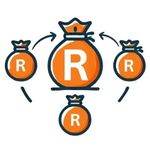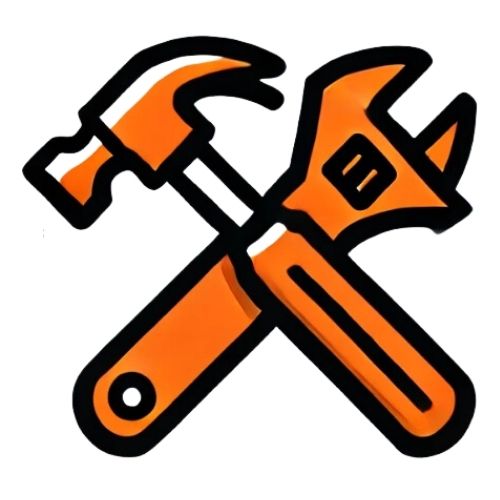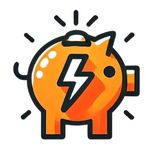
May 2025 presents a good time for many South Africans to look at borrowing money for specific, practical reasons. With the economy showing signs of stabilising and interest rates expected to remain relatively steady, borrowers may be in a better position to access credit with manageable repayment terms. Whether it’s covering unexpected costs, consolidating debt, or making long-term investments in education or home improvements, borrowing can help with financial planning when used correctly.
Key Takeaways
- Favourable Timing for Borrowing: May 2025 may offer better lending conditions due to steady or slightly reduced interest rates and contained inflation. This provides an opportunity for South Africans to access credit with more manageable repayment terms.
- Smart Uses for Loans: Borrowing can be practical when used for debt consolidation, home improvements, education, business funding, or emergencies. Choosing the right reason and loan type helps improve long-term financial outcomes.
- Know What to Consider Before Applying: Before taking out a loan, assess your repayment ability, credit score, loan options, interest rate type, and all associated fees. Being well-informed reduces the risk of borrowing beyond your means.
Interest Rate Trends Heading Into May 2025
As May 2025 approaches, South Africa’s interest rate landscape is showing signs of gradual easing, offering potential benefits for borrowers. The South African Reserve Bank (SARB) has maintained a cautious approach, balancing domestic economic conditions with global uncertainties.
Current Interest Rate Status
The SARB has kept the repo rate steady at 7.5% during its March 2025 meeting, reflecting a wait-and-see approach amid global economic uncertainties. This decision aligns with the central bank’s strategy to monitor inflation trends and external factors before making further adjustments.
Inflation and Economic Outlook
Inflation remains within the SARB’s target range, with recent figures indicating a rate of 3.2% in February 2025. The central bank projects inflation to average 4.0% in 2025, influenced by factors such as proposed VAT increases and global trade dynamics. Economic growth forecasts have been slightly revised down to 1.7% for 2025, reflecting subdued demand and ongoing supply challenges.
Future Rate Expectations
Economists anticipate that the SARB may resume its rate-cutting cycle in May 2025, potentially reducing the repo rate to 7.25% and maintaining it for the rest of the year. This outlook is supported by the expectation that inflation will remain contained, allowing for a more accommodative monetary policy stance.
Implications for Borrowers
For individuals considering borrowing, the potential for lower interest rates could translate into more affordable loan repayments. However, it’s essential to remain mindful of the broader economic context and personal financial circumstances when making borrowing decisions.
About Arcadia Finance
Arcadia Finance makes borrowing easy. No application fees, 19 vetted lenders, and full compliance with South Africa’s National Credit Regulator mean you can trust the process from start to finish. Get the loan you need, stress-free.

The Impact on Consumers and Businesses in South Africa
Impact on Consumers
Effective 1 May 2025, South Africa’s VAT rate increases from 15% to 15.5%, with a further rise to 16% scheduled for April 2026. This change affects most goods and services, leading to higher costs for essentials like clothing, mobile services, and private healthcare. Basic food items remain VAT-exempt, but the overall cost of living is expected to rise. Additionally, the lack of inflation adjustments to personal income tax brackets means many workers will pay more tax without corresponding increases in real income. These factors contribute to reduced disposable income and heightened financial strain for households.
Impact on Businesses
Businesses must adapt to the new VAT rate by updating pricing, accounting systems, and customer communications. The increase may dampen consumer spending, particularly in price-sensitive sectors like retail and hospitality. Small and medium-sized enterprises (SMEs) may face challenges in absorbing additional costs or passing them on to consumers, potentially affecting profitability. Moreover, the need to adjust systems and processes to accommodate the VAT change requires careful planning and resource allocation.
Smart Reasons to Borrow in May 2025

Debt Consolidation
Many South Africans carry high-interest debts across credit cards, store accounts, and personal loans. Consolidating these into one loan can reduce monthly payments and simplify budgeting. Personal loans usually offer lower interest rates than credit cards, which can be above 20%. By switching to a fixed-rate loan with better terms, you may save money and manage repayments more effectively. A single loan also improves your credit score over time if managed well, making future borrowing easier.

Home Improvements
If you own property, May 2025 is a good time to borrow against your home equity to fund renovations. Upgrading your home can increase its value and improve energy efficiency, especially when installing solar panels or insulation. Home equity loans offer a lump sum at a fixed rate, while HELOCs provide flexible access to funds as needed. These options often have lower rates than personal loans, but your home is used as security, so repayments must be made on time.

Education and Skill Development
Borrowing to fund education or training can offer long-term financial benefits. Courses in healthcare, technology, or skilled trades can lead to higher salaries or career changes. Whether you’re studying part-time or full-time, student loans can help cover tuition and materials. Some banks offer flexible repayment plans linked to your income after graduation. This type of borrowing is often considered a smart investment in your future earning potential.

Business Ventures
If you plan to start or expand a small business, borrowing may be necessary to cover initial or growth costs. Funds can be used for equipment, staff, inventory, or marketing. Before taking a loan, calculate your expected return and monthly costs. The government and private lenders offer support for SMEs, including grants and business loans with favourable terms. A well-prepared business plan can help improve your chances of approval.

Emergency Expenses
Unexpected costs like car repairs, medical bills, or funeral expenses can cause stress if you don’t have savings. A short-term personal loan gives quick access to money, allowing you to deal with the issue immediately. Choose a lender with transparent fees and realistic repayment terms. Avoid payday loans, which can become expensive quickly. Having pre-approved credit or a small emergency fund can also provide peace of mind in urgent situations.
Evaluating Borrowing Options
When considering borrowing in May 2025, it’s essential to understand the various options available. Here’s a concise overview:
- Personal Loans: Personal loans can be unsecured or secured. Unsecured loans don’t need collateral but usually have higher interest. Secured loans offer better rates but carry more risk. Terms range from 1 to 6 years, with approval based on credit score and income. Use comparison tools to find the best offers.
- Credit Cards: Credit cards are useful for short-term borrowing but carry high interest if unpaid monthly. Balance transfer deals may offer low or 0% interest for a limited time. Stay under 30% of your limit and pay on time to avoid debt build-up and protect your credit score.
- Home Equity Products: Home equity loans and HELOCs offer lower interest than personal loans and are ideal for large expenses. A loan gives a lump sum; a HELOC offers flexible access. Both use your home as collateral, so missed payments risk losing your property.
- Government and Community Programmes: Government loans and credit unions offer affordable finance with flexible terms. Options like SEFA support small businesses. Eligibility depends on income, credit history, and purpose. Applications usually require ID and proof of income.
Key Considerations Before Borrowing in South Africa
Review Your Financial Position
Before applying for credit, take time to clearly define why you need the loan and how much is required. At the same time, assess whether your budget allows for consistent repayments. Go through your monthly earnings, current expenses, and any existing debts. This will help you determine if you can take on the loan without placing your finances under pressure.
Check the Impact of Your Credit Record
Your credit score has a direct effect on your chances of loan approval and the interest rate you may receive. A stronger credit profile usually results in better lending terms. Check your report regularly through recognised South African credit bureaus and dispute any incorrect information promptly, as this can affect your loan outcome.
Choose the Right Loan Option
Decide whether a secured or unsecured loan matches your situation. Secured loans require an asset as collateral, such as a car or home, and often offer lower interest rates. Unsecured loans, which do not require collateral, are typically easier to access but usually carry higher interest rates due to the increased risk to the lender.
Understand Fixed vs Variable Interest Rates
You will need to decide between a fixed or variable interest rate. A fixed rate gives you consistent repayments, which helps with budgeting. A variable rate may rise or fall over time, which can result in savings if market rates decline, but also introduces an element of risk.
Be Aware of All Fees and Charges
When evaluating a loan, remember that the interest rate is only one part of the cost. Application fees, monthly service fees, and charges for early or late payments can add up quickly. Request a full breakdown of all fees in writing so you understand the total cost over the life of the loan.
Read the Full Terms and Conditions
Always read the entire loan agreement carefully before signing. Pay attention to the repayment schedule, the potential for interest rate changes, and any legal clauses that may affect your rights or responsibilities. If anything is unclear, ask the lender for a full explanation before proceeding.

Conclusion
Borrowing in May 2025 can be a practical decision for South Africans who have a clear purpose and stable financial footing. With interest rates expected to remain steady or decline slightly, and a range of loan types available, individuals and businesses can access credit under manageable conditions. However, rising living costs, new tax policies, and economic uncertainty mean it’s essential to plan carefully before committing to any form of debt. Understanding your financial situation, comparing lenders, and choosing the right borrowing option will help ensure that the loan serves its intended purpose without putting your finances at risk.
Frequently Asked Questions
Yes, May 2025 appears to be a favourable time to borrow, as interest rates are expected to ease slightly and inflation remains under control. However, it’s still important to evaluate your financial situation carefully before applying.
A variety of loan options are available, including personal loans (secured or unsecured), credit cards, home equity products, and funding from government or community lenders. The right choice depends on your financial needs, credit record, and repayment ability.
You should assess your monthly income, expenses, and existing debts to ensure you can manage repayments. It’s also worth checking your credit score and comparing different loan offers, interest rates, and fees to find the most suitable option.
Yes, debt consolidation is a practical use of a loan. It allows you to combine multiple high-interest debts into a single payment, often at a lower interest rate, which can simplify repayment and potentially reduce your monthly costs.
The VAT increase from 15% to 15.5% from May 2025 will raise the cost of many goods and services. This means you may have less disposable income, so it’s important to factor this into your budget when deciding whether you can afford new loan repayments.






